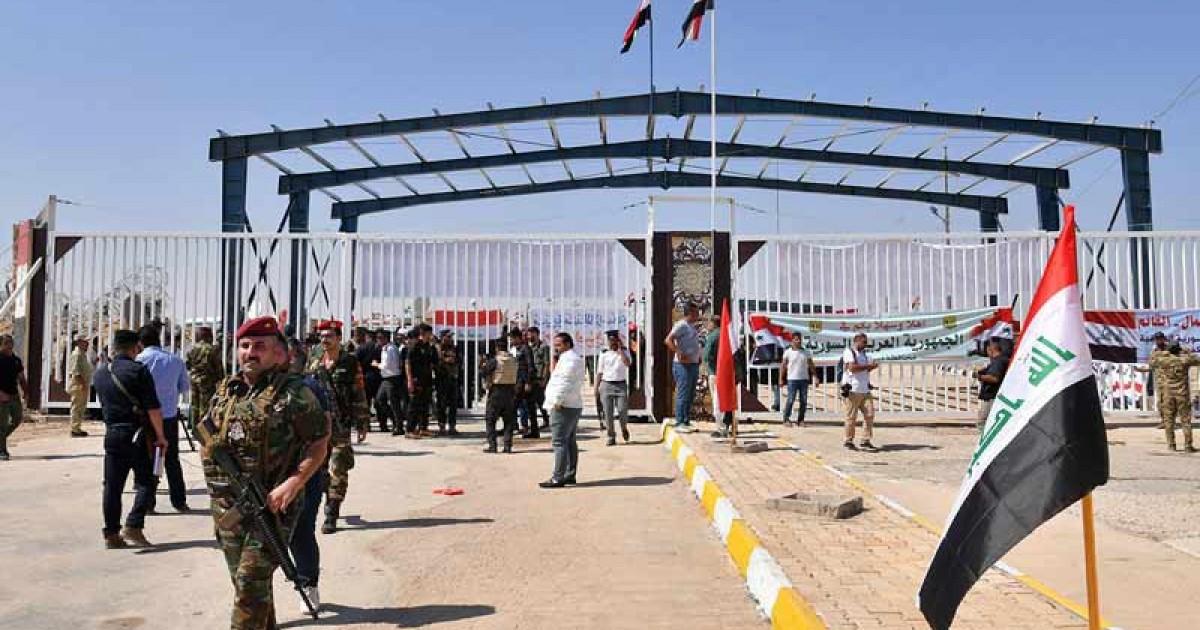Future of Syrian refugees in Iraq: Legal and humanitarian challenges

Shafaq News/ Iraq is facing complexlegal and humanitarian challenges regarding its Syrian refugee population.While many Syrians are classified as displaced persons, the debate continuesover whether they should be recognized as refugees under Iraq’s 1971 PoliticalRefugee Law. With countries taking steps toward repatriation, Iraq's uncertainstance leaves the future of these refugees in question.
Global Syrian Refugees Crisis
The ongoing Syrian conflict hasdriven millions of people to seek refuge across the globe, with Turkiye hostingthe largest population, totaling 3,112,683, according to the latest data fromthe UN Refugee Agency (UNHCR.)
Lebanon follows as thesecond-largest host country in the region, accommodating 774,697 refugees,while Germany leads in Europe with 716,728 Syrian nationals. Other hostcountries include Jordan with 628,135 refugees, Iraq with 286,099, and Egyptwith 156,465.
In Europe, Austria has taken in97,939 Syrians, Sweden 86,956, the Netherlands 65,622, and Greece 50,759.
The global distribution of Syrianrefugees, detailed in the UNHCR's latest report, underscores the magnitude ofthe crisis. However, recent developments in Syria have prompted shifts inrefugee policies across host nations.
Refugee Policies Shift
Less than 48 hours after thetoppling of Syrian President Bashar al-Assad, Germany, which hosts the largestSyrian population outside the Middle East, announced it would freeze asylumprocessing for Syrian citizens.
An official from the Federal Officefor Migration and Refugees cited the "unclear and unpredictable politicalsituation" as the reason, noting that this would affect 47,770 pendingapplications.
Austria followed suit, with itscaretaker government pausing asylum proceedings for Syrians.
Meanwhile, Greece, which houses tensof thousands of Syrian refugees, issued a statement emphasizing that the returnto "democratic normalcy" in Syria should enable safe repatriationsand curtail further migration.
Turkiye, the largest host, hasintensified efforts to promote "honorable returns" through voluntaryrepatriation programs. Border crossings have seen increasing activity asSyrians prepare to return, encouraged by emerging stability in parts of thecountry.
Lebanon has also partially reopenedits Masnaa border crossing, facilitating returns.
Despite these shifts, the UNHCR hasurged caution. Filippo Grandi, the UN High Commissioner for Refugees, stressedthat any repatriation must be "voluntary" and "safe," asconditions in Syria remain fragile and uncertain.
These developments raised questionsabout the future of millions displaced by the Syrian conflict, including inIraq.
Iraq’s Syrian Refugees: UncertainFuture
Iraq is currently home toapproximately 280,000 Syrians, with the majority residing in the Kurdistanregion. Around 122,000 refugees are estimated to live in the Erbil Governorate,including both the city and surrounding camps. Of this number, 92,000 reside inErbil and its outskirts outside the camps, while others are spread acrossseveral camps in Iraq such as Domiz, Qushtapa, Basirma, Darashakran, Gozarto,Sharya, Akre, Makhmour, Al-Sulaymaniyah.
Despite the large number of Syriansin Iraq, the Iraqi Ministry of Immigration and Displacement has stated that"the situation is unclear to raise issues such as the return atpresent," clarifying that Syrians in the country are not refugees, butdisplaced persons and asylum seekers.
Ali Abbas Jahakir, the ministry'sspokesperson, explained that many Syrians initially displaced in Iraq wereseeking asylum in other countries.
“The fate of these Syrians remainsuncertain, as Iraq's position on asylum is shaped by regionaldynamics…decisions on asylum requests are left to the authorities that permitthem, while Iraq treats Syrian nationals as displaced persons.” He explained, pointingout that the strategic matters concerning the refugees are not feasible at thistime.
Sherif Suleiman, a member of Iraq’sCommittee of Labor, Social Affairs, and Displaced Persons, underscored Iraq'shumanitarian stance, and the country’s longstanding tradition of hostingrefugees, including those from neighboring countries. “Migration is ahumanitarian issue and should be dealt with without political interference. Thecommittee is closely monitoring the Syrian situation with the government andMinistry of Migration to assist as needed.”
“Despite the ongoing financialchallenges in the region, the Kurdistan area remains a favored destination formany displaced Syrians due to its humanitarian response,” Suleiman said,expressing hope for stability in Syria to prevent further displacement butassured that Iraq is prepared to welcome additional refugees if the situationworsens.
While many Syrians are currentlyclassified as displaced persons and asylum seekers, questions have arisen aboutthe legal terminology and framework that should apply to their status.
Legal Debate Surrounds Syrians InIraq
According to legal expert MohamedJumaa, the Iraqi government holds the legal right to accept refugees under thePolitical Refugee Law No. 51 of 1971. Jumaa clarified that “the law defines arefugee as anyone seeking refuge in Iraq for political or military reasons.Refugees in Iraq, under this law, are entitled to certain rights, and theirrefugee status is renewed annually as long as the conditions for their asylumremain valid.”
He pointed out that Palestinianrefugees have retained their status for decades under the same law.
Jumaa strongly rejected the notionof referring to Syrians as displaced persons, asserting that they should berecognized as refugees or expatriates, arguing that displacement refers tointernal movement within a country, while refugees cross borders seekingprotection.
“The Iraqi government should handlethe issue legally and avoid using colloquial terms like ‘guests,’ which hold nolegal standing under Iraqi law. The term ‘refugee’ is the appropriate legaldesignation,” he said.
In contrast, legal expert Alial-Tamimi provided insights into the distinction between political andhumanitarian asylum in international law. He explained that “humanitarianasylum is granted to individuals fleeing unrest, human rights violations, or disturbancesin their home countries, under specific conditions.”
“Political asylum, on the otherhand, is less common and typically sought by political figures such asopposition leaders or individuals fleeing political persecution.”
The decision to grant politicalasylum, al-Tamimi noted, is a political one made by the host country.

